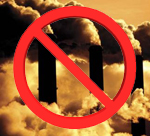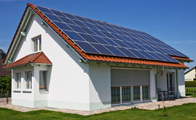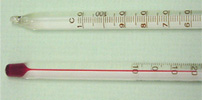


This evening at the Berkeley Repertory Theatre, learn about three efforts our grandchildren may thank us for: cheap solar energy, bringing energy efficiency to China, and learning how to store carbon deep underground. Berkeley Lab scientists Curt Oldenburg, Ramamoorthy Ramesh, and Nan Zhou will introduce these topics — and answer questions — in a lively panel discussion hosted by the Public Affairs Department. The event starts at 7 p.m. at 2025 Addison St. Admission is free. More>
 Research: Could Your I-Pad or Blackberry Use a Micro-Supercapacitor?
Research: Could Your I-Pad or Blackberry Use a Micro-Supercapacitor? John Chmiola of the Environmental Energy Technologies Division is developing a new breed of micro-supercapacitors that could substantially boost the performance and longevity of the portable electric energy storage devices. He was the lead author of a paper in the April 23 edition of Science, in which a technique is described for integrating high performance micro-sized supercapacitors into a variety of portable electronic devices through common microfabrication techniques. These micro-supercapacitors boast a high power density and practically infinite cycle life. More>
 Research: Study Shows California Solar Net Metering Cost-Effective
Research: Study Shows California Solar Net Metering Cost-EffectiveResearchers in the Lab’s Environmental Energy Technologies Division released a new study on the bill savings received by residential customers with solar photovoltaic (PV) power systems, under the net metering rates currently offered by California’s two largest electric utilities. The report focuses on California, as it is the largest PV market in the U.S. More>
 Are you using mercury thermometers where a non-mercury thermometer would work just as well? Mercury thermometers are distinguished by the silver color of the liquid; non-mercury-containing thermometer columns are typically red. Metallic mercury is a potent neurotoxin and poses a threat to human health and the environment. When mercury thermometers break, clean-up is extensive and costly. It is even more dangerous when a spill occurs in ovens or incubators, with the evaporation creating higher airborne mercury concentrations. EH&S will come to your site and exchange mercury thermometers with environmentally friendly thermometers. To make a request, contact Dan Best (x7246).
Are you using mercury thermometers where a non-mercury thermometer would work just as well? Mercury thermometers are distinguished by the silver color of the liquid; non-mercury-containing thermometer columns are typically red. Metallic mercury is a potent neurotoxin and poses a threat to human health and the environment. When mercury thermometers break, clean-up is extensive and costly. It is even more dangerous when a spill occurs in ovens or incubators, with the evaporation creating higher airborne mercury concentrations. EH&S will come to your site and exchange mercury thermometers with environmentally friendly thermometers. To make a request, contact Dan Best (x7246).
An opinion piece by Berkeley Lab’s Art Rosenfeld
[Wall Street Journal] Can government really make a difference in promoting energy efficiency? From my experience, the answer is: Without a doubt. Suppose over a period of 15 years, all eligible flat roofs in major cities were colored white. That would offset the heating effect of 15 billion tons of CO2. It's like turning off the entire world's emissions for four months or about 40 percent of the world's passenger cars for 15 years. This idea slows global warming, saves utility bills, and makes buildings and cities more comfortable in summer. I commend it to your attention. More>
The International Researchers and Scholars Office (IRSO) is holding a brown bag Q&A session today from noon to 1 p.m. in Perseverance Hall (Bldg. 54-130). This session will allow employees, supervisors, and others to ask questions regarding visas, green card applications, work permits, and other topics. E-mail [email protected] for more information.
Today
at Berkeley Lab encourages comments,
suggestions, and story ideas. Please send them here.
TABL is produced by Public Affairs' Communications Group